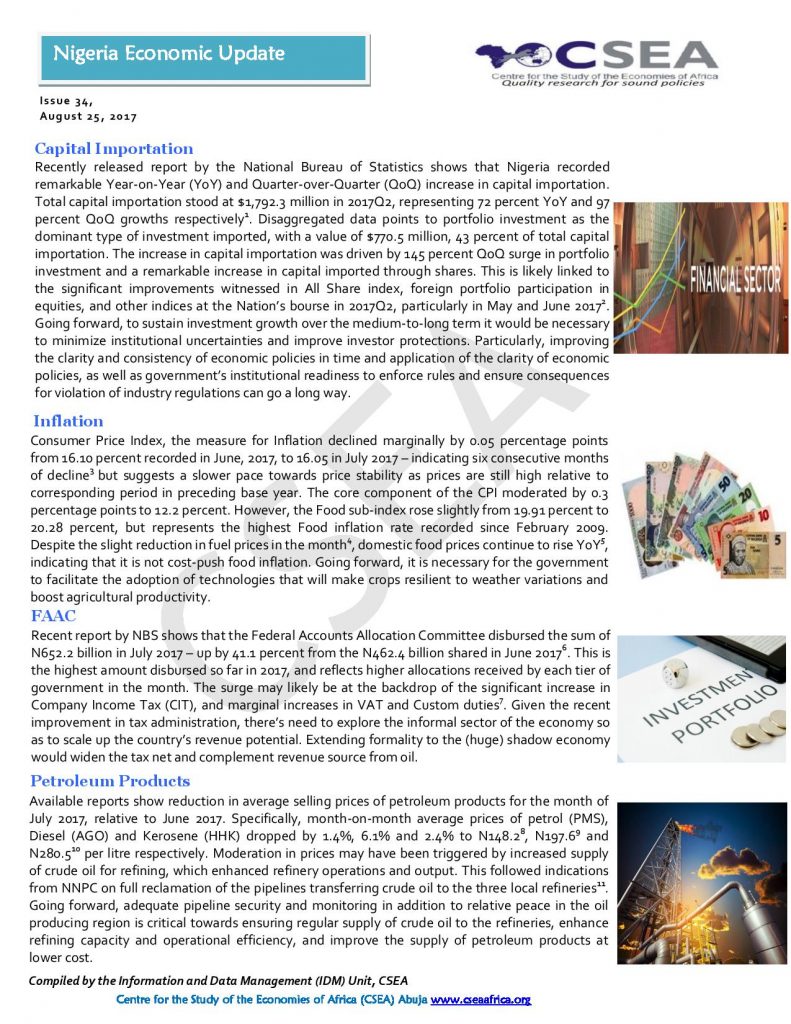Macroeconomic Report & Economic Updates

September 12, 2017
Nigeria Economic Update (Issue 34)
Recently released report by the National Bureau of Statistics shows that Nigeria recorded remarkable Year-on-Year (YoY) and Quarter-over-Quarter (QoQ) increase in capital importation. Total capital importation stood at $1,792.3 million in 2017Q2, representing 72 percent YoY and 97 percent QoQ growths respectively. Disaggregated data points to portfolio investment as the dominant type of investment imported, with a value of $770.5 million, 43 percent of total capital importation. The increase in capital importation was driven by 145 percent QoQ surge in portfolio investment and a remarkable increase in capital imported through shares.
Related
Nigeria Economic Review (First Half Report 2014)
Globally,
advanced economies showed strong signs of recovery during 2014H1 despite the
adverse effect of the severe winter (especially on the United States economy)
while economic activities slowed and growth was below projection in emerging
and developing economies.
Nigeria Economic Update (Issue 47)
Recent
data by NBS indicates an increase in bank credit to private sector. Specifically,
private sector credit rose (year on year) by 24.4 percent to N16,185.1 billion
in 2016Q3 relative to 2016Q2, with Oil and gas, and Manufacturing
sectors taking the consecutive largest shares of the credit. The rise may be connected
to the need to improve credit availability to critical sectors in order to
hasten the recovery from the ongoing recession. The present rise in bank credit
to the manufacturing sector seems to be a step in the right direction as the
sector is critical to Nigerias industrialization and economic stability.
